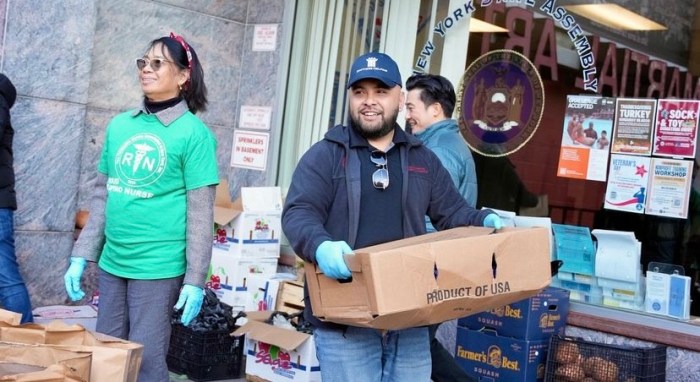By Prem Calvin Prashad
A dearth of affordable housing, as well as a proliferation of converted — and “unapproved” — basement apartments, has led a coalition of Queens community groups and professionals to pursue changes to the way city government defines a legal rental unit.
Rather than pushing for sweeping changes in zoning laws, the Basement Apartments are Safe for Everyone Campaign proposes a new designation, known as an Accessory Dwelling Unit, to legalize basement apartments that adhere to a strict safety code. This designation would be applied only when the dwelling meets mandatory provisions, such as two exits for the apartment.
Drew Goldsman, the project manager for real estate development spearheading the BASE Campaign, noted that “we want it to be on a case-by-case basis,” where if there is enough light, air and safety, then the unit can be legalized with only minor tweaks and no new major construction.
The idea behind the BASE Campaign was conceptual for the past seven years, with groups such as the Chhaya Community Development Corp., which houses the coalition, carrying out studies in conjunction with academic and community resources to conceptualize the scope of basement apartments in New York’s outerboroughs. The campaign is now moving toward presenting the ADU proposal to the City Council.
The Jackson Heights-based Chhaya CDC noted in one such study that the up to 35 percent of possible illegal modifications in a neighborhood they observed could be legalized under a possible ADU designation.
Goldsman stressed that the benefit of an ADU code is that another unit will not be added to the house, thus preventing a conflict with zoning laws or construction that fundamentally changes the property.
“We’re not looking to dramatically change the building code,” he said.
Furthermore, an ADU designation would ensure the unit is deemed completely safe, even for children and the elderly. Indeed, demographic trends have pointed to older homeowners moving into their converted basements while deriving rental income from tenants, which is necessary to pay the ballooning mortgage costs associated with homeownership in Queens.
The city has historically been at odds with the idea of basement apartments, yet a blitz of violations issued in the late 1990s failed to stem the tremendous demand for these units and alternative affordable housing remains few and far between. Proponents of the BASE Campaign believe that legalization is the inevitable and reasonable solution to thousands of potentially unsafe units operating off the city’s grid.
Should the ADU plan be approved by the Council, the campaign hopes to start a pilot program within a limited area. Goldsman noted that there are a number of builders and architects who would be available to craft the code and assist homeowners with compliance.
“We realize this is a complicated issue,” Goldsman said, “and we want to do it right.”
The compliance program would be voluntary, with a moratorium on the issuance of new violations. The city would still carry out enforcement against non-ADU units.
The idea of legalizing cellar apartments as legal dwelling units is not a new concept, with similar programs implemented in California and Washington state, as well as 17 towns on Long Island. In two particular cases, the Riverhead, L.I., ADU program helps homeowners with monthly costs, while the East Hampton program standardizes and codifies the requirements for a safe unit.
Perhaps the greatest need for ADUs arises from the need to maximize land use in low-density areas, particularly those that would be otherwise prone to sprawl. Though there are concerns about the impact on schools, infrastructure and communities, the fact remains, as Goldsman said, that those residents already exist, albeit uncounted due to their dwelling’s status. Legalization would ensure that those residents are also counted, which would factor into funding for basic city services.
Through extensive field study, the coalition admits that not all basements can be made safe for occupancy.
“We don’t want to fool ourselves into thinking all of these units are safe,” Goldsman said. “We’ve been into some where the landlord is taking advantage of the tenant.”
Goldsman said ADUs would be a net benefit to neighborhoods. According to the coalition, the added income of the unit stabilizes neighborhoods, thus serving as a foreclosure prevention program. These units, in turn, serve as affordable housing. By making them illegal, Goldsman noted, “you don’t allow them to be made safe.”
This is a priority in ensuring the safety of firefighters entering a modified structure in the event of an emergency.
For more information on the BASE Campaign, visit basecampaign.wordpress.com/about/.



































